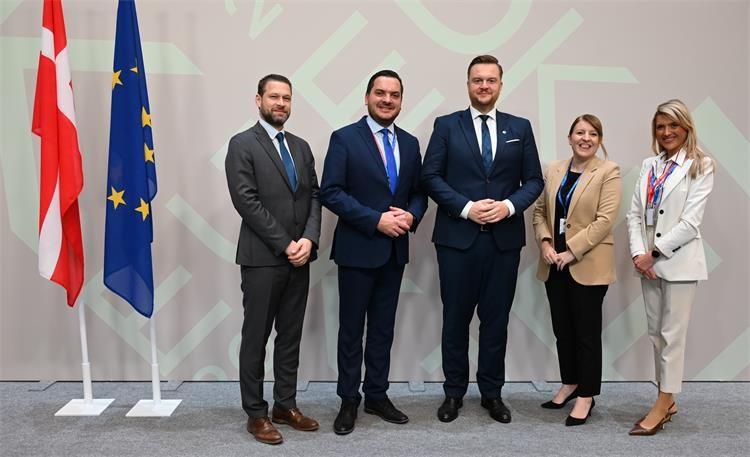
Deputy PM Voices Croatia's Priorities In ECOFIN Discussions (PHOTO)
During a working lunch, ministers discussed the economic consequences of new European Union legislation, with a particular focus on avoiding the introduction of additional administrative burdens. In this context, ministers considered the potential horizontal role of ECOFIN in overseeing the economic impacts of new legislation.
In the first working session, ministers discussed the complexity of the EU's regulatory framework in the field of finance and how to improve efforts to simplify it while at the same time maintaining a high level of consumer, investor, and financial stability protection. This initiative is aligned with the Budapest Declaration on a New Deal for European Competitiveness, the priorities of the European Commission, and Mario Draghi's report on EU competitiveness. Simplification of legislation has also been recognized as a key prerequisite for the development of the Union of Savings and Investments (USI), aimed at mobilizing household savings and directing them towards productive investments.
In the second working session, which focused on national structural reforms to strengthen productivity and resilience, the importance of reinforcing reform implementation was emphasized. At the EU level, significant efforts are being made to encourage national reforms through the European Semester process, which results in country-specific recommendations (CSRs), the implementation of the Recovery and Resilience Facility (RRF), and medium-term fiscal-structural plans which, while safeguarding fiscal sustainability, aim to stimulate structural reforms and investments. Furthermore, in the context of the upcoming Multiannual Financial Framework for the period 2028–2034, the European Commission's proposal implies a stronger link between EU funding and the implementation of national reforms. However, while EU-level initiatives can support reforms, the responsibility for their implementation lies solely with each Member State. Therefore, ministers devoted particular attention to possible ways of overcoming political, institutional, and socio-economic obstacles.
In the third working session, ministers discussed geopolitical changes and the global economy, focusing on possible ways for the European Union and partner countries to act in the short and medium term with the goal of strengthening economic resilience and strategic autonomy, while simultaneously consolidating strategic partnerships and steering the long-term development of the global economy and geopolitical relations in a more favorable direction. Particular attention in the discussion was also given to the continued provision of financial assistance to Ukraine.

Legal Disclaimer:
MENAFN provides the
information “as is” without warranty of any kind. We do not accept
any responsibility or liability for the accuracy, content, images,
videos, licenses, completeness, legality, or reliability of the information
contained in this article. If you have any complaints or copyright
issues related to this article, kindly contact the provider above.

















Comments
No comment